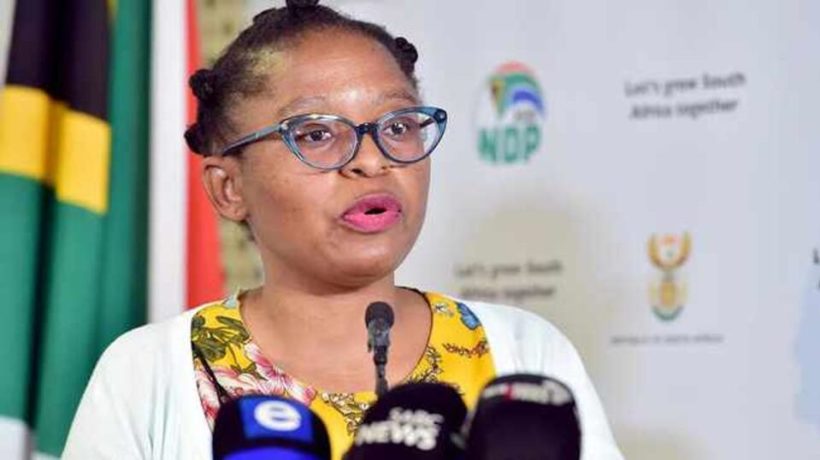The Communications and Digital Technologies ministry is one of those that has been less fortunate in getting a Minister with the necessary industry experience.
Now for the first time, someone who has a professional background in working with technology has been appointed to serve as the Minister of Communications and Digital Technologies. Minister Khumbudzo Ntshavheni will serve as the 15th Minister in a department that has numerous difficulties. Ntshavheni served as the municipal manager of Ba-Phalaborwa municipality in Limpopo, a position that she held from April 2008 until November 2010. She is also a previous tourism manager for trade & investment in Limpopo. She served as spokeswoman to the premier of Limpopo and had lectured at Unisa. It is her experience of working as the Chief Information Officer for the local government and housing departments in Limpopo and her role as the Chief Operating Officer at the State Information Technology Agency (SITA) that will serve as her most important weapon in the department that requires someone who understands technology.
She has an important task of leading spectrum allocation, sorting out the Post Office mess, and taking the SABC to new heights. She has an opportunity to make an impact in the South African ICT landscape. To make a dent in the universe she will have to go where no other minister has been before. She joins the Comms & Digital Tech ministry at a time when South Africa needs digital transformation. The pandemic as well as the emergence of the 4th industrial revolution requires a digital response that has never been seen before. South Africa will have to, for the first time, create a new entity to respond to new technological changes. SABC, SA Post Office as well as Telkom are dinosaurs of the past. This is not to say they are no longer relevant, they however need a counterpart to take them into the 4th industrial revolution.
Ntshavheni can make a significant impact by creating a National Data entity to unlock innovation and enable the digital economy.
South African tech startups and the economy, in general, need an entity that can provide quality data (in the form of information) to build new products and services.
In the same way that Eskom provided electricity to power previous industrial revolutions, SA needs another entity to power the new industrial revolution in the form of data.
South Africa can develop a trillion-dollar industry by making it easy for companies to access data and APIs to develop new companies. Various economic sectors in South Africa produce troves of data that can be harnessed to enable new companies.
As someone who worked at the State Information Technology Agency, Ntshavheni knows what it takes to develop technology systems that can serve the nation and economy.
In her list of priorities, however, the data policy should be on top. It would be unwise for South Africa to pursue the 4th industrial revolution goals without a clear legal framework to provide a national direction. Lastly, South Africa needs a national portal and an app to enable citizens to access government services from the comfort of their homes and without waiting in long queues.
It is one thing for each department to have their own digital platform, it is something else to integrate them (sitting on different databases) and enable ease of access. SA should learn from Estonia and its approach to eCitizenry. Estonia has built an efficient, secure, and transparent ecosystem where 99% of governmental services are online. It is no surprise then that Estonians have designed numerous digital solutions to help tackle the COVID-19 pandemic crisis. Estonia has experienced the transformative power of digital development over the last 30 years since restoring its independence in 1991. Estonia has shared the benefits of an e-society and lessons learned with many other countries around the world. Digitalisation has served as an equaliser within the country as well as in international competition as it makes countries more efficient.
Minister Ntshavheni can become the first Minister to make the necessary impact in the Comms and Digital Tech ministry and use technology to enable a better life for all.
Her ministry is one of the few that can contribute to the economy by enabling the digital economy to thrive by unlocking data and innovation to make South Africa a digital nation.
Wesley Diphoko – is the Editor-In-Chief of the Fast Company (SA) magazine.







